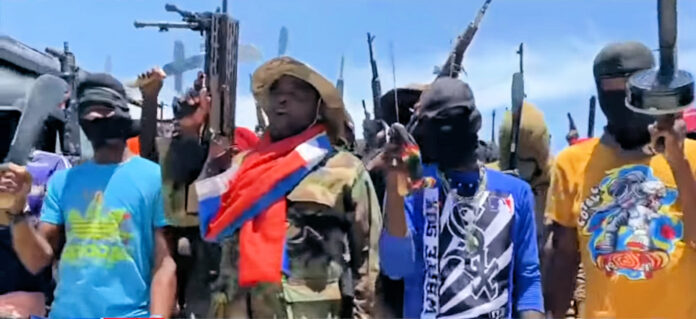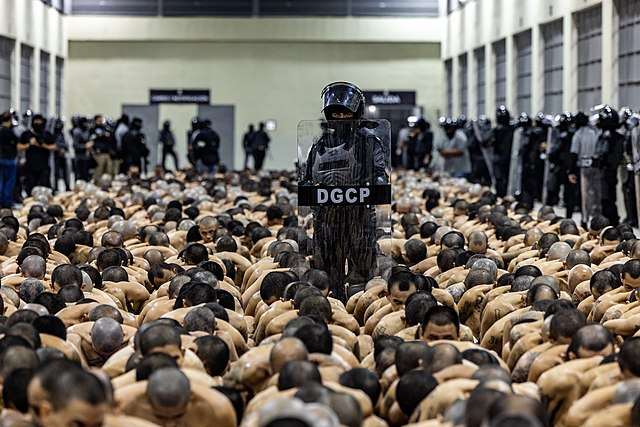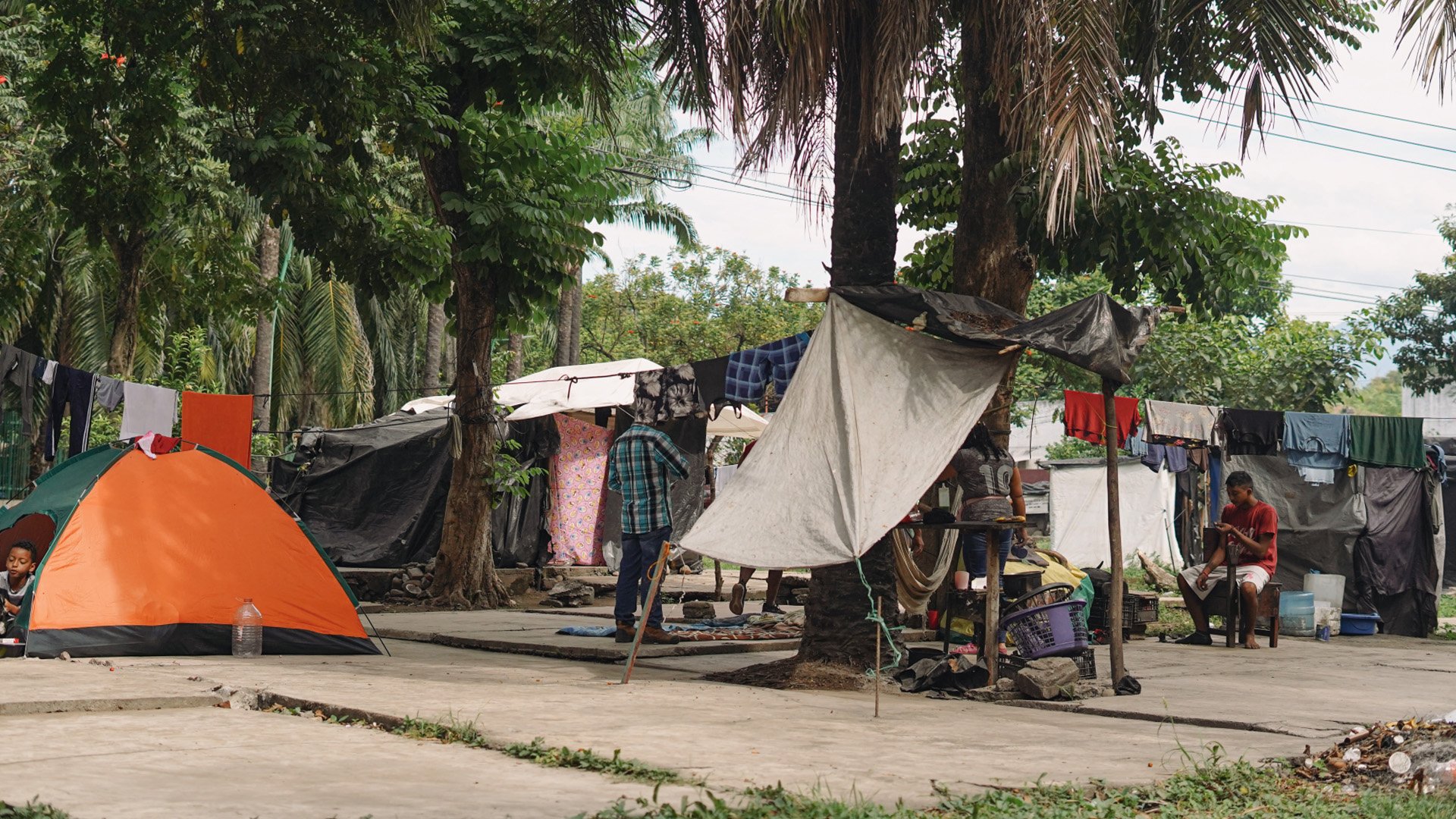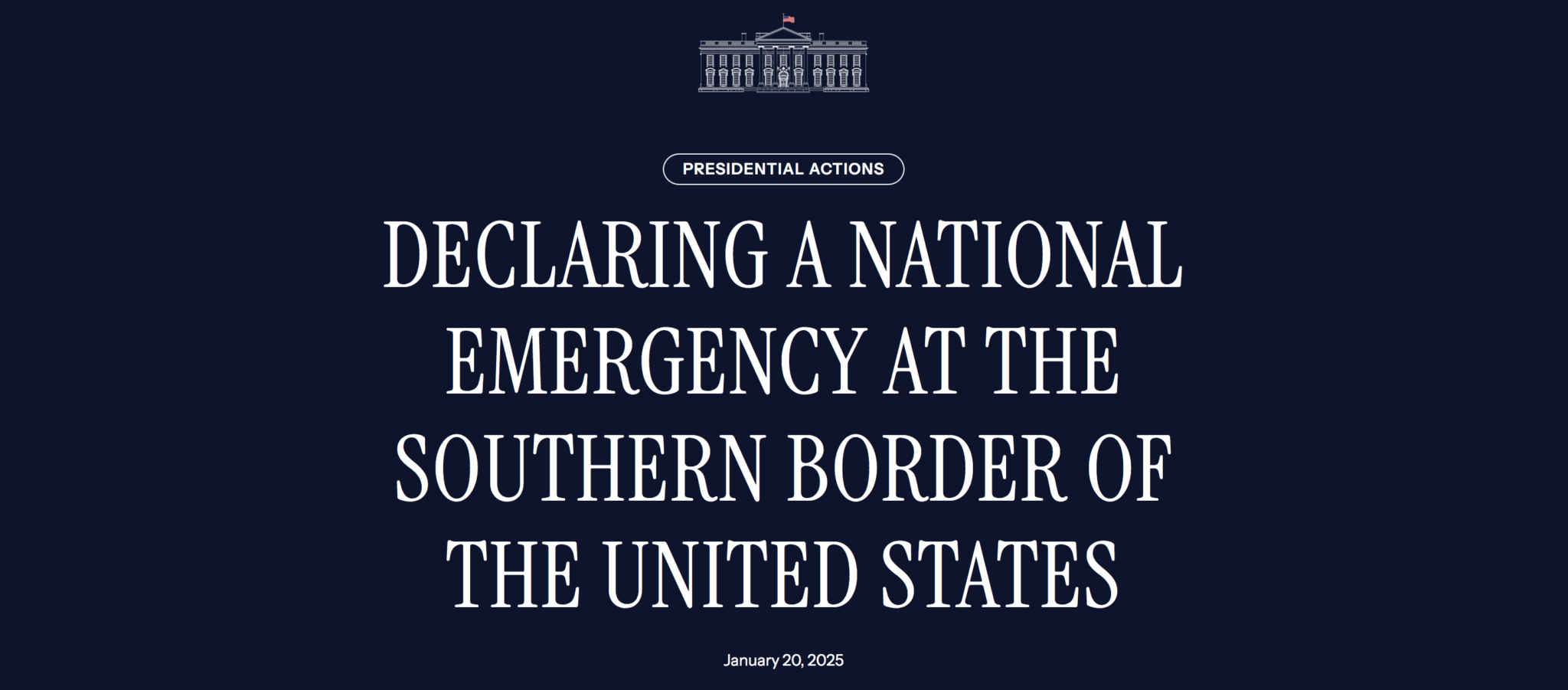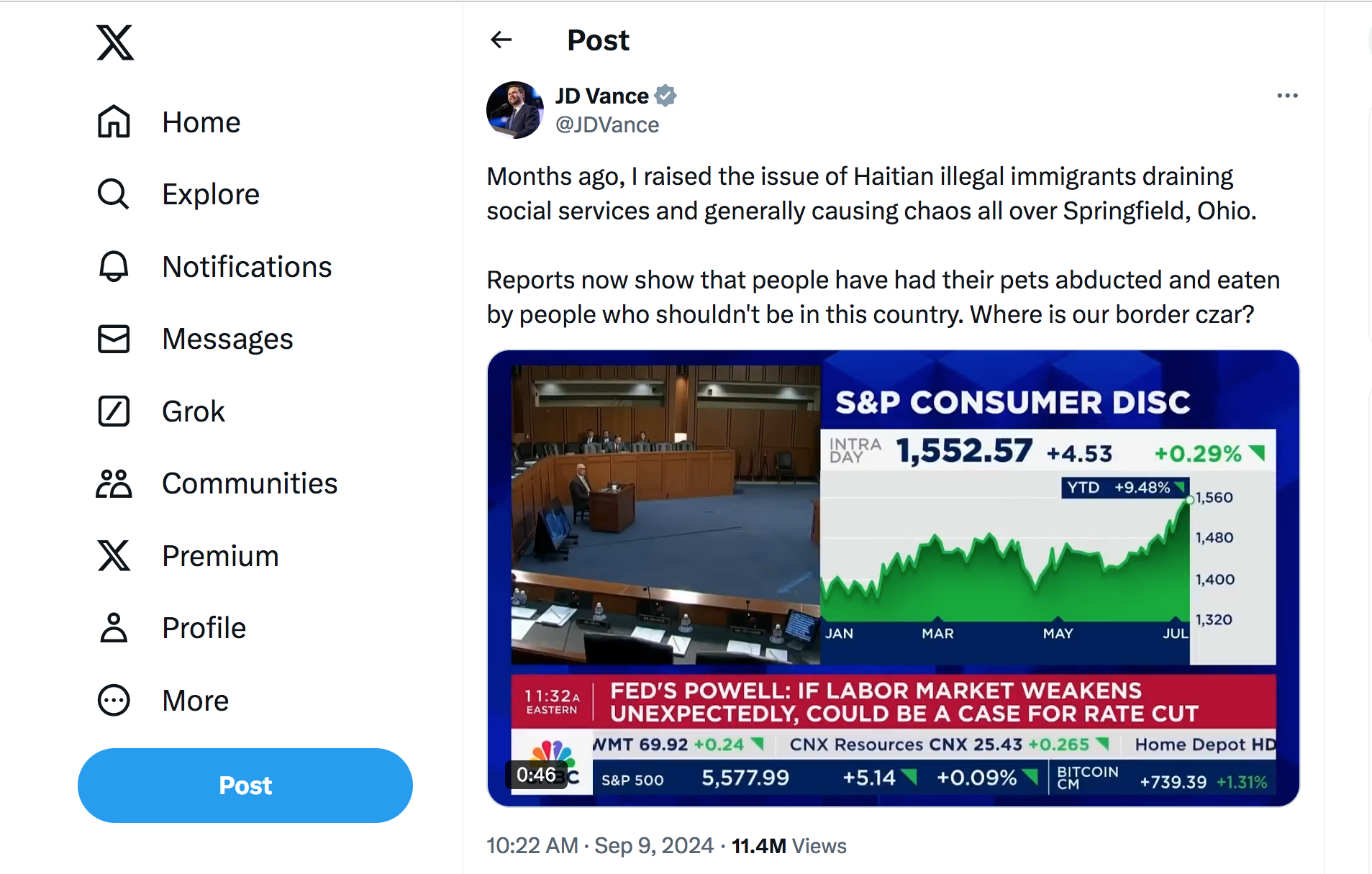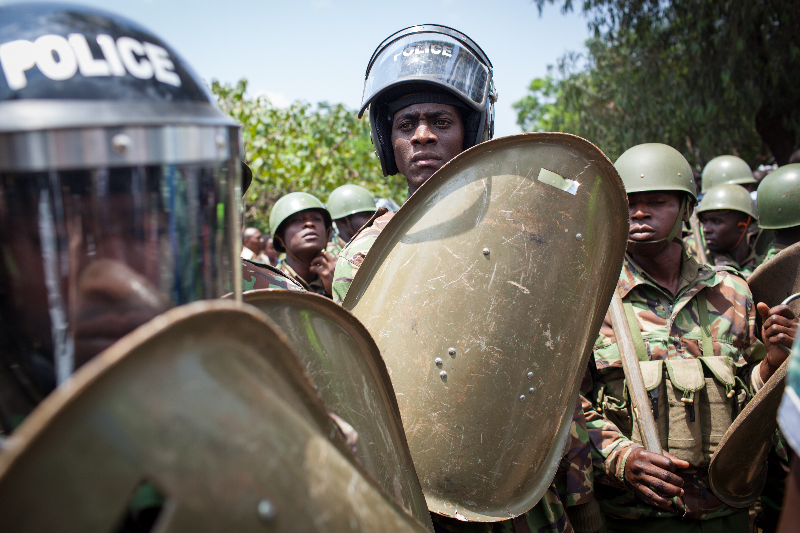
New international ‘Gang Suppression Force’ for Haiti
The UN Security Council approved a resolution transforming the Kenya-led Multinational Security Support (MSS) mission, whose mandate has ended, into a Gang Suppression Force (GSF). Sponsored by the United States and Panama, the new force is set to include up to 5,500 military and police officers—far more than the old MSS force, which mustered fewer than 1,000. It’s not clear which countries the personnel for the GSF will come from, but it will also have “a broader mandate” than the MSS, which was restricted to supporting the Haitian National Police (PNH). The initial 12-month mandate includes “intelligence-led targeted counter-gang operations,” as well as supporting the PNH and Haitian armed forces. (Photo: Amnesty Kenya via PolicingInsight)



